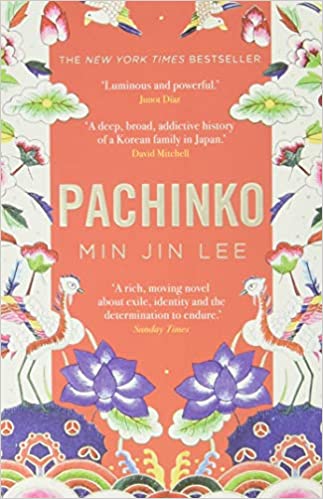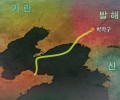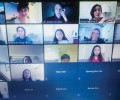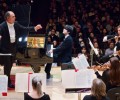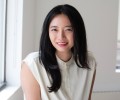| My Path to Gaining a Holistic View of Korean History |
| K-보스턴 문예공모전 대상 수상작 |
| 보스톤코리아 2021-06-24, 17:07:45 |
The 21st century has witnessed a global boom in Korean culture and media. South Korea’s influence has reached each continent, marking its place as a contributor to the global economy. Given the popularity and lucrativeness of South Korea’s pop culture, fashion, and beauty industries, more Gen-Z’s and Millennials are turning to South Korea for entertainment, cosmetic products, and the latest trends. Although this is an incredible economic and influential accomplishment by Korea, the country’s media and pop culture has created a filtered perception for non-Koreans. In high school, I assumed that life in Korea was akin to dramas, movies, and K-pop content. The Korean media that I consumed led me to believe that all Koreans were extremely attractive, and that life in Korea was easy, exciting, and fun. Many 20-something non-Koreans learned about Korea solely through dramas and K-pop. The media that I consumed was edited and perfected, and catered to my interests. My assumption was that Korea was a near-perfect place to live. While enjoying of K-media, I had an inkling that there was more to the story. Vaguely aware of the geo-political reasons for the division of the Korean peninsula, I also knew that Japan had brutally colonized Korea for decades. But, aside from a set of hazy facts, the history of Korea was a mystery to me. As a long-time lover of books and reading, my first instinct was to turn to literature. Over the past three years, I have read five books set in Korea: Pachinko by Min Jin Lee, Human Acts by Han Kang, The Island of Sea Women by Lisa See Kim Jiyoung, Born 1982 by Cho Nam-Joo, and If I had Your Face by Frances Cha. These novels have given me greater insight into Korea’s history and the cultural issues still permeating in contemporary Korean society. The first three books, Pachinko, Human Acts, and The Island of Sea Women, introduced me to Korea’s layered history. Pachinko is a multi-generational novel describing a Korean family’s emigration and journey to Japan through the early to mid-twentieth century. Vividly depicting the struggle against Japanese discrimination, the novel masterfully details the family’s fight against poverty, their longing to return to Korea, and the consistent questioning of their identity. Family separation, death, racism, and betrayal are among the salient themes of these Koreans’ life experiences. Pachinko was my first introduction to the true extent of the Japanese imperialism. All of a sudden, my perception of Korea as a flawless utopia was adjusted by its tragic history of Japanese colonialism. My next book was The Island of Sea Women, a beautiful novel describing the lives of friends Mi-ja and Young-sook, two haenyeo (female divers) from Jeju. Prior to reading this novel, I only knew Jeju Island as a popular beach and vacation spot for Koreans. This novel introduced Jeju’s unique geopolitical value to occupying powers in the Japanese colonial period through the start of the Korean War. I learned that Japan and America (and many other powerful nations, such as Russia during Korea’s long colonial history) used Jeju as a bargaining chip in their power politics. Mi-ja and Young-sook’s town was frequently occupied by the Japanese and then the Americans during their lifetimes. See’s novel provided me with insight of geopolitics’ impact on Koreans, against the unique backdrop of haenyeo culture and life in the twentieth century. Whereas Pachinko largely took place in Japan, The Island of Sea Women showed similar struggles in Korea. Next, picking up Human Acts, I found it a difficult and heavy read. While Pachinko and The Island of Sea Women are fast-paced and eventful, Human Acts is a novel laced with sorrow on each page. Depicting the Gwangju Uprising of 1980, Kang describes a heart-wrenching narrative of death and confusion during the protests. Family members search for one another, volunteers clean up corpses, and students exchange strategies for further demonstrations. This novel prompted me to consume further media about the Gwangju Uprising, including even the 2017 movie Taxi Driver. Learning about this event through both these mediums helped me to truly grasp the human scale of the tragedy from the Uprising. After reading these historical novels, I transitioned to two books that describe contemporary happenings in Korea: If I Had Your Face and Kim Jiyoung, Born 1982. Both novels focus on the difficulties that Korean women face in modern society. While If I Had Your Face explores various human-interest topics, such as beauty standards, relationships, and obsessive personalities, Kim Jiyoung, Born 1982 tackles the expectations and treatment of women in Korea, from childhood through motherhood. These two books demonstrated that, while Korea is among the top nations to emerge from a development stage with, rapid modernization and economic growth, its society still clings to its traditional Confucian roots. Despite progressive attitudes towards women’s equality in many first-world countries in the 21st century, Korea has been slower to accept these values and so gender roles for women remain stuck in its complex history and traditions, as defined by Confucian thought. These books have expanded my interest in Korea as a nation beyond the world of dramas, movies, and music. I yearn to learn more about Korea’s culture, history and place in the global political sphere. I have also discovered that the American education system generally disregards the history, politics, and culture of Asia in favor of Euro-centric history classes. To fill this knowledge gap, I took three Korean history classes with Professor Ingu Hwang at Boston College, including “Divided Korea,” “Colonial Korea,” and “Industrialization and Democracy of Korea,” and even added an International Studies minor with a concentration in Asia. As a May 2021 graduate, I anticipate applying for the Global Korea Scholarship for graduate programs at a Korean University. My understanding of Korea has grown significantly, from the introduction of Korean-centric history and literature. While still enjoying entertaining movies and music, I now recognize that these media only highlight one side of Korea. South Korea, like all nations, has imperfections and still struggles with its tumultuous history. With a holistic and more complete understanding of Korean society, politics, and history, I am more capable of being a global leader and an advocate for Korea and its society. There is more to Korea than the average American sees on the surface: amazing K-pop concerts, skin care, and cinematic productions. The nation is dynamic and complex, which makes it even more beautiful. While I still have more to learn about contemporary Korean society and history, I can trust that there are endless novels to enlighten me. ⓒ 보스톤코리아(http://www.bostonkorea.com), 무단전재 및 재배포 금지 |
[ 관련기사 ]
K-보스턴 문예공모전 100여편 응모 반응 뜨거워
2021.06.24 
 |
 의견목록 [의견수 : 0]
의견목록 [의견수 : 0]
|
 |
| 등록된 의견이 없습니다. | |
|
|
 프리미엄 광고
프리미엄 광고

161 Harvard Avenue, Suite 4D, Allston, MA 02134
Tel. 617-254-4654 | Fax. 617-254-4210 | Email. [email protected]
Copyright(C) 2006-2018 by BostonKorea.com All Rights Reserved.
Designed and Managed by Loopivot.com










